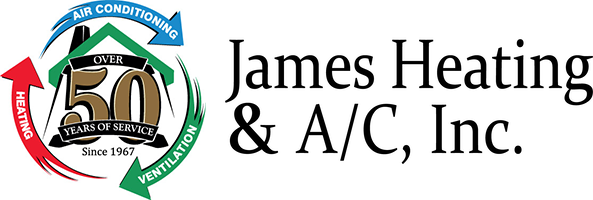
Ever done a double take when you checked your last energy bill? Although high energy bills can be the consequence of extreme weather events, persistently high bills can quickly signify an inefficient HVAC system or your home is wasting energy by other means, including drafty windows or inadequate insulation.
An easy way to identify whether your home is consuming too much energy is by getting a home service professional to complete a home energy audit, also known as a home energy assessment. Keep reading to learn all about home energy audits, including what they are and their advantages.
What Is a Home Energy Audit?
An energy audit is a custom inspection of how much energy your home consumes and whether – and where – your home could be losing or wasting energy. An inspector will review past energy bills in the course of an energy audit to figure out where energy is being used and how much.
The general goal of an energy audit is to help homeowners save money on their energy bills by identifying energy-efficient improvements, which can include exchanging your current HVAC system, putting in new insulation, plugging up leaks, or replacing old windows.
During the energy assessment, the auditor carries out an inspection of the outside and inside of your home. The auditor completes a blower door test on doorways, windows and fireplaces to find out if there are air leaks in your home. They’ll also inspect your home’s HVAC system, including the ductwork, the water heater, and the insulation in your attic. Exhaustive assessments may also include reviewing your current lighting system.
Benefits of a Home Energy Audit
It can be tough for the ordinary homeowner to be sure how efficient their home is in comparison to other similar homes in their area. However, many energy companies often offer information about where your home is ranked when compared with similar homes and whether it’s more efficient, about average, or inefficient compared to your neighbors’ homes. This could be a useful starting point to decide if you need an energy audit completed.
Several of the benefits of a home energy audit include:
Learning How Efficient Your Home Is
It’s beneficial to understand how efficient your home is and where you’re using the most energy. For example, if your ducts are leaking air, it could result in a significant increase in your energy bills and additional wear and tear on your HVAC system as it has to work longer to completely heat or cool your home.
Making Energy-Efficient Updates
An energy audit can reveal where you need to make energy-efficient upgrades to cut back on energy and lower utility bills. This might include replacing worn weatherstripping or getting a new energy-efficient furnace.
Enhancing Health and Safety
Allowing air to leak into your home via doors and windows, or due to a lack of insulation can cause unwanted moisture to build up, which could negatively affect your home’s humidity levels or produce mold. This can exacerbate health issues, particularly for people suffering from asthma or allergies.
Raising Your Home’s Retail Value
Energy-efficient homes are sought after by homebuyers. You can sell your home much faster or for more money by showing potential buyers that it’s energy efficient.
How to Complete an Energy Audit of Your Home
Although performing an energy audit on your own will not be as comprehensive as choosing a professional, it’ll offer a generalized understanding of how energy efficient your home is. If you don’t find any issues during the DIY test, then you likely don’t need to bring in a professional. Follow this step-by-step checklist:
- Examine your HVAC system. Leaky ducts can lose as much as 20% of conditioned air, contributing to steeper energy bills and increased wear and tear on HVAC equipment. If you find leaks, use duct tape to seal them. If your HVAC equipment is old and wearing down, upgrading to a new system can save you a significant amount on your energy bills. In some cases, it might be better to hire a reputable HVAC company to inspect your system.
- Look for air leaks. Air leaks on average can increase your energy bills by 10 to 20%. Inside, look for air leaks in areas where you can find a draft, including along the edge of flooring and near baseboards and electrical outlets. Outside, you can inspect for air leaks along the home’s foundation, siding and mortar. Plug, caulk or seal any air leaks to save money.
- Examine insulation. If your home is older, it could mean your insulation is too. If you can see the joists, you likely need more insulation.
- Check the ventilation. Ensure that all of your kitchen and bathroom exhaust fans are spinning properly, and check for evidence of rot or moisture.
Contact James Heating & A/C, Inc for a Professional Energy Audit
If you would like professional help finding out how energy efficient your heating and cooling equipment is, contact the HVAC experts at James Heating & A/C, Inc today. We’ve proudly supported the residents of Lexington with quality home services for a long time. Contact us today to set up an appointment.

